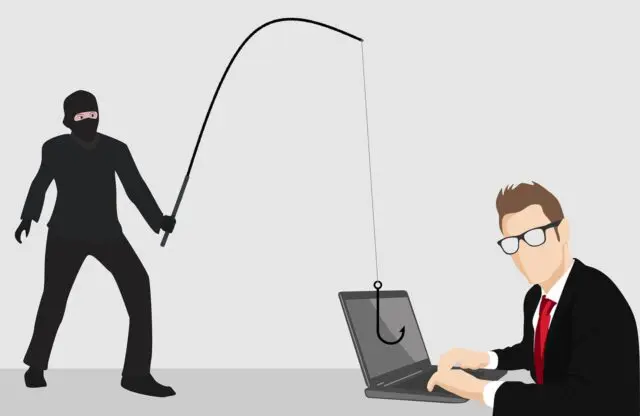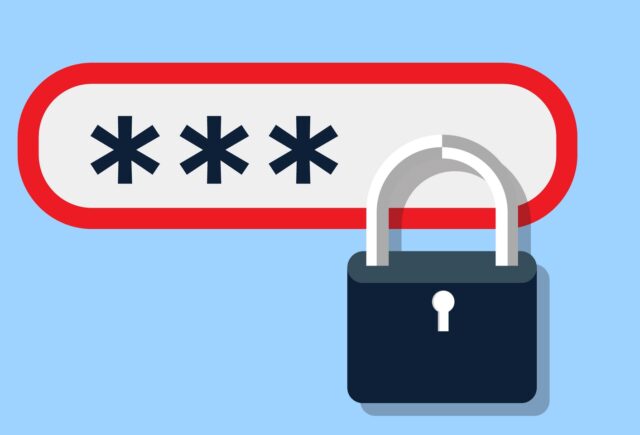
Phishing, the deceptive practice of luring victims into revealing sensitive information, lurks like a silent predator in the ever-expanding digital ocean. In this treacherous online world, casino players are particularly vulnerable, with their financial details and personal data tempting prey for cybercriminals. Today, we dive deep into the murky waters of phishing scams, exploring their dangers, and equipping you with essential tools to navigate safely.
The casino accounts that you maintain are meant to be like vaults. Not only do they contain personal information about you, but often they may also have data about your finances. For this reason, it’s a good idea to keep your casino under lockdown with a good password. Phishing is a way for scammers and hackers to get around encryption methods, and they do this by tricking their users. Knowing how phishing works and the potential dangers that it represents is one of the best ways to protect your online casino account from criminals looking to make a quick buck.

Understanding the Phishing Hook
Phishing attacks take on various forms, but their core strategy remains the same: deception. Scammers meticulously craft emails, text messages, or even phone calls that mimic legitimate entities like banks, credit card companies, or even online casinos. These messages often create a sense of urgency, fear, or excitement, prompting victims to click on malicious links or attachments, or divulge sensitive information like passwords or credit card details.
How Modern Phishing Came To Be
- The Early Nets (1990s): The first recorded phish, targeting AOL accounts, swam into existence in the mid-1990s. Hackers posed as AOL staff, using instant messages and emails to steal passwords and login details. This laid the groundwork for future attacks.
- Evolving Bait (2000s): As the internet flourished, so did phishing. The 2000s saw the rise of mass email campaigns targeting financial institutions like eBay and PayPal. Phishers mimicked official logos and language, tricking users into revealing credit card information.
- Spear Phishing Strikes (2010s): Phishing became more personalized with the emergence of “spear phishing” in the 2010s. Attackers crafted emails tailored to specific individuals, often using stolen information to gain trust. This increased success rates significantly.
- Modern Depths (2020s): Today, phishing remains a significant threat. Scammers utilize social media, text messages, and even phone calls, blending sophisticated social engineering with technological advancements. They target not just financial data but also personal information for identity theft

The Allure of the Casino Bait
Online casino players are prime targets for phishing attacks due to several factors:
- Financial Transactions: Players frequently engage in financial transactions, making their financial information highly valuable to cybercriminals.
- Trust and Excitement: The thrill of the game and the trust placed in online platforms can cloud judgment, making players more susceptible to deceptive tactics. The right casino sites will not resort to such tactics, which you can easily confirm the next time you receive an email from your casino of choice, such as the popular ZAR Casino South Africa site.
- Limited Awareness: Lack of knowledge about phishing schemes can leave players vulnerable to cleverly disguised attacks.
Dangers of the Phishing Net
The consequences of falling victim to a phishing scam can be severe, including:
- Financial Loss: Stolen credit card information can lead to fraudulent charges and financial losses.
- Identity Theft: Phishing attacks can be used to steal personal data, opening the door to identity theft and its associated consequences.
- Malware Infection: Clicking on malicious links or attachments can infect your device with malware, compromising your privacy and security.
- Emotional Distress: Dealing with the aftermath of a phishing scam can be stressful and emotionally draining.

Essential Protection Techniques
Fortunately, you can equip yourself with effective tools to combat phishing attempts:
- Scrutinize the Sender: Always double-check the sender’s email address or phone number. Look for misspellings, inconsistencies, or domains that don’t match the claimed organization. Many emails from official providers will be sent from specific email address. It’s a good idea to verify those email addresses by comparing them to the ones found on the company’s website.
- Hover, Don’t Click: Never click on suspicious links or attachments directly. Instead, hover over them to preview the actual URL, which often reveals discrepancies. For instance, if an email is sent from a bank, the link will provide a URL preview that matches the URL used by that bank. Phishing scammers will rely on the user not previewing the URLs that they click on in order them to lure them to a fake site page.
- Beware of Urgency: Phishing messages often create a sense of urgency to pressure you into quick action. Take a step back, verify the information independently, and avoid rushed decisions.
- Guarding Personal Details: Never share sensitive information like passwords or financial details through emails, texts, or unsolicited calls. Legitimate companies will never request such information through these channels.
- Strong Passwords: Utilize strong, unique passwords for all your online accounts, and enable two-factor authentication wherever possible.
- Anti-Phishing Software: Consider installing anti-phishing software on your devices for an extra layer of protection.
- Stay Informed: Regularly update your knowledge about the latest phishing tactics and scams. It doesn’t mean having to follow all the various cybersecurity blogs and newsfeeds out there, but doing a check-up on the latest security practises is a good way of staying on top of potential phishing attempts.
Reporting the Phisher
If you suspect you’ve been targeted by a phishing attempt, it’s crucial to report it immediately. Forward the fraudulent email or message to the relevant platform (casino, bank, etc.) and report it to anti-phishing organizations that may be based in your country. Phishing is a crime that’s always better to prevent rather than cure, which is why it’s vital to stay alert to anything suspicious when online.

Remember: By staying vigilant, practising caution, and employing the tools provided, you can navigate the digital seas with confidence, leaving the phishers stranded on the shores of failure. Play responsibly, stay informed, and enjoy the online gaming experience safely!









